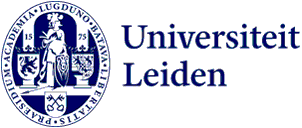Lecture | COGLOSS
Colonial and Global History Seminar
- Date
- Wednesday 8 June 2022
- Time
- Serie
- COGLOSS seminars 2021-2022
- Address
-
Johan Huizinga
Doelensteeg 16
2311 VL Leiden - Room
- Conference room (2.60)
The first is our very own last CoGloSSession of the year. On Wednesday the 8th of June, Lydia Walker will talk to us about “Global Indigeneity in International Society, 1974-2007”. Lydia will present a work-in-progress in which she discusses “the formation and evolution of indigeneity as a global discourse for international claims-making” in which a prominent role was played by the cooperation between a Sámi artist and writer and his friend from the north-eastern highlands of India (please see the attached poster for abstract and details). The presentation will take place in the Conference Room of the Huizinga building from 15.30 to 17.00. It promises to be an exciting talk and we hope that you will join us for this last session!
Presentation Abstract
In April 1976, the Sarni artist and writer, Hans Ragnar Mathisen/Keviselie made a postcard that featuring the portrait of his close Naga friend Visier Meyasetsu Sanyii (from Nagaland, at the junction of China, Burma, and India). Mathisen planned to sell the card to support the World Council of Indigenous Peoples, that had been founded the previous year by George Manuel in Canada. That year, Mathisen traveled across North America, meeting with luminaries of the American Indian Movement, attending the World Council oflndigenous Peoples and visiting the United Nations in New York City (picture below), several years before indigenous claimants were granted their own UN forum (the UN Working Group on Indigenous Peoples) in 1982. Mathisen chronicled his travels, ideas, and struggles to Sanyii over four decades of correspondence, a period that aligned with the formalization of indigenous claims-making at the United Nations, a process in which Mathisen and Sanyii both participated. Drawing upon their correspondence and the papers of the non-governmental organizations that indigenous claimants utilized to access the Working Group, this draft begins to chart the formation and evolution of indigeneity as a global discourse for international claims-making, analyzing the interplay between personal narratives, institutional structures, and organizational intermediaries.

